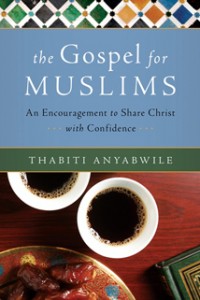I’ve recently had the pleasure of listening to Jimmy Needham’s newest album, The Hymn Sessions, Vol. 1. This album is ridiculously off the charts good, and if you haven’t ever listened to Jimmy then you are really missing out.
His latest album is his own “spin” on classic hymns, such as “Come thou Fount”, “Holy, Holy, Holy” and a new one for me called “It is Finished.” This last song might be an original track since I can’t find any precedent of it, which all-the-more speaks to Needham’s brilliance and gift.
The opening line to this song has given me much pause over the last week, and for multiple reasons. It goes like this:
It is finished, it is finished
“Tetelestai.”
The beauty of the double-meaning phrase!
Most of you are probably thinking that the second line looks like jibberish. Rightly-so. It took me a few listens to understand what was going on, but when it hit me it was right between the eyes: it’s the words of Jesus from the Gospel of John written in Greek! This may not seem like a huge deal to some, but I’m hoping with a brief explanation this expression will come to mean much more to you than just the words “It is finished.”
This particular passage comes from John 19:30, and they are the last words spoken by Christ before dying on the cross. We often look back to these words of Christ and come to the conclusion that Jesus was acknowledging that after all of his suffering, his purpose was complete. The once-and-for-all sacrifice for our sins had been completed. This is absolutely accurate. But with a little bit of exegetical analysis, this phrase will become even more beautiful to our ears than it already is.
The word “tetelestai” comes from the Greek τελέω. The simple translation of this word is “to finish” – hence our translation. However, this word carries some extra weight. Properly understood in its religious context, “bears the overtone of fulfilling one’s religious obligations” (Carson, PNTC). This is where we get our understanding that Jesus’ once and for all sacrifice for sin was accomplished and carried out on Calvary. Jesus came to Earth with a mission – to purchase us with his blood. And it was certainly finished.
But I want us to dig a little bit deeper. I want to take a look at the usage of the word in particular. In the Koine Greek language, which is the language of the New Testament, verbs could carry one of any number of tenses to communicate varying nuances. There is a particular tense in the Greek that denotes a finite, one time action. It has happened once, and that is it – there are no lasting consequences.
However, this tense is not the tense John uses to communicate his point in his gospel. He could’ve used the other tense, which might be what we would actually expect for a historical event. Instead, he uses a tense that communicates an action that occurred in the past with present and ongoing consequence.
What does this mean for us? This means that Jesus’ sacrifice for sin was, and continues to be into this day, and will always be, accomplished. Done. There is nothing we can add, and there is nothing we can take away from Jesus’ sacrifice. There is nothing more for us to do! He has done it all.
Perhaps this idea could best be communicated by the lyrics of the second-half of verse 1:
He has ceased from His labor
And so have I!
Now Resting only in His grace
What grace! Thanks for the opportunity to reflect, Jimmy.
Well, I’m married.
Since I already posted one “Sola Wednesday” listing my top 5 read posts so far of 2013, I figured I should follow up with 5 of the least read posts so far. Have you read them all?
1) They Were the Best of Times, They Were the Worst of Times
My first post. The one that started it all.
My Bible Study series was largely left unread. Here is the final post in the series – have you read them all?
3) From the Vault: Thomas Cranmer
I’ve really been enjoying discovering new dead guys to post on the blog. This might be my favorite so far.
I wrote a three-part series on the purpose behind studying the original Biblical languages. I really enjoyed writing this up for people to read!
Sometimes I feel most in communion with God when I write, rather than speak, my prayers to Him.
There is something interesting that happens as Christians when we approach and study other faiths. I have found it to be the norm, rather than the exception, that we approach other faiths without grace or applying the gospel. Instead, we just look for intellectual karate-chops, ways that we can try and force people to show them they’re wrong in conversation with quick and succinct blows.
As Christians, our language and conversation with others should be completely full of love and grace. Let your speech always be gracious, seasoned with salt, so that you may know how you ought to answer each person (Col 4:6).
This is why I loved reading Thabiti Anyabwile’s recent book The Gospel for Muslims: An Encouragement to Share Christ with Confidence. To be honest, when I first approached this book I slipped back into my default mode. From the outside, Thabiti’s book is very short, and I initially approached it hoping for quick and easy ways to “win” arguments against Muslim followers. What I received instead was a great primer on the gospel, my need for Jesus, and how that needs to be the center of any conversation I have with a Muslim follower. Despite a few shortcomings that I will detail below, The Gospel for Muslims is a fantastic book for any church or Christian looking for an introduction to Christian-Muslim interfaith dialogue.
Praise
As a former Muslim believer, Anyabwile is well aware of the Islamic though process and its doctrines. It is his background and conversion experience that has given Thabiti the heart to write this book, and that is evident on every page. Pastor Anyabwile really believes, as we should all believe, that we are to serve our Muslim neighbors and be salt and light to them.
The strongest point of Pastor Anyabwile’s book is its emphasis on the gospel and the need for the gospel in any and all conversations with Muslim believers. This is not an apologetics book, and it is not intended to be so. As Anyabwile says in his introduction, “Apologetics is a helpful discipline, but it is not evangelism” (p. 14). The books primary focus is encouraging Christians to believe that the gospel really is the power of salvation to all who might believe. This is where Thabiti is at his strongest, encouraging even the newest believer that they know what they need to engage a Muslim follower.
Divided into two parts, the first part of the book focuses on the gospel itself. This is a primer for the most learned or unlearned Christian, succinctly hitting all the key points of our faith on God, man, Jesus, repentance, faith, etc. The second part of the book contains practical suggestions with Muslims.
This second part of the book contains some very helpful tips that I really think are crucial for the church today. In chapter 8, Pastor Anyabwile focuses on the necessity to be hospitable in our conversations with Muslims. This may sound elementary, but isn’t it something that is really hard to do – especially in heated conversation?
The following chapter focuses on using your local church to reach out to your Muslim neighbors. As a member of a relatively new Acts 29 church, I really loved this chapter and that Thabiti would think to include it. Though short, this chapter contains a lot of helpful encouragement and advice for the local church in reaching it’s Muslim neighbors.
Pastor Anyabwile also includes a helpful chapter on reaching the African American Muslim community. As an African American and former Muslim, Anyabwile speaks with grace in regards to this issue and I found the chapter to be very helpful.
Criticisms
On the whole, I loved The Gospel for Muslims, Pastor Anyabwile’s heart for that community, and the centrality of the gospel on every page of the book. There is however one criticism I would offer for the book. Even though my criticisms are few, I do believe there is one fairly serious issue worth noting in the text.
Thabiti makes a few statements throughout the book in regards to a Muslims approach to the Bible. He correctly states that many (if not all) Muslims believe that the Bible is completely corrupted in its current state, yet he incorrectly states that they have no reason to believe as such.
One of the greatest problems in approaching the Quranic text is that it is not wholly unified in any sort of narrative or exhortational fashion. The Qur’an is broken up into chapters, or suras, which were received by Mohammad throughout his lifetime in various revelations. Muslim scholars do their best to try and figure out which verses (ayats) came before others, but there is much disagreement. Complicating this issue is the Islamic doctrine of abrogation (nasikh). This doctrine states that when two verses conflict, the most recent verse abrogates – or overwrites – the previous verse. This is seen best from the Qur’an itself:
2:106 None of Our revelations do We abrogate or cause to be forgotten, but We substitute something better or similar: Knowest thou not that Allah Hath power over all things?
13:39 Allah doth blot out or confirm what He pleaseth: with Him is the Mother of the Book.
Thabiti is correct when he references the Qur’an as stating at times that Muslims should be in agreement with Christian or Jewish teachings. One such Sura Thabiti references is below:
5:46-47 And in their footsteps We sent Jesus the son of Mary, confirming the Law that had come before him: We sent him the Gospel: therein was guidance and light, and confirmation of the Law that had come before him: a guidance and an admonition to those who fear Allah. Let the people of the Gospel judge by what Allah hath revealed therein.
Pastor Anyabwile’s conclusion is that we should then work to convince our Muslim neighbors that they must listen to our Bible because their Qur’an says so, and that there actually isn’t any grounds in the Qur’an for Muslims to say the Bible is corrupted. However, a quick gloss of Quranic text would give us a different result:
3:78 There is among them a section who distort The Book with their tongues: (As they read) you would think It is a part of the Book, But it is no part Of the Book; and they say, “That it is from Allah”, But it is not from Allah.
2:113 The Jews say: “The Christians Have naught (to stand) upon”; And the Christians say: “The Jews have naught (to stand) upon.” Yet they (profess to) study the (same) Book.
5:14 From those, too, who call Themselves Christians, We did take a Covenant, But they forgot a good part of the Message that was Sent them: so we estranged them…
The above verses are a brief synopsis of texts that Muslims interpret to say that the Bible is corrupted and that Christians use false texts. This rightly is in disagreement with the Sura Thabiti quotes in his book, but that is not a conflict because of the doctrine of abrogation.
Anyabwile hits on this idea a few times in the book, and I fear the consequences of not appropriately fleshing out this subject in the book. Not only that, I’m afraid his conclusion is simply or prematurely wrong, and that it will convince many readers that they can show their Muslims neighbors to believe in the Bible because their Qur’an says so.
Conclusion
I loved The Gospel for Muslims. It was short, simple, and to the point. The book was a great encouragement and reminder that the gospel must be at the center of our evangelistic efforts.
However, the few issues I have with the book are glaring. As the book is short and is not meant to fully flush out Islamic doctrine, I think Pastor Anyabwile gets the issue of the Islamic perspective of the Bible completely wrong, or at least not fully examined. In addition, since the text is so short, there really wasn’t much room to elaborate on some key Islamic doctrines. I really think the book might’ve benefited from an extra 20 pages spread throughout the book to provide a few more details and insights into Islamic beliefs.
There are a few caveats to keep in mind, and The Gospel for Muslims might best be used with some additional resources and information compiled from other sources. Despite what might be a few shortcomings, this is a book I would definitely recommend to others and use in the future when teaching or discussing Islamic evangelistic efforts.
“Sola Wednesday” is going to look a little different for the next two weeks.
As many of you know, I’ll be getting married this Saturday (WOO HOO). Then I’ll be on my honeymoon next week.
So this week I give you a list of the top 5 read posts of 2013 so far. I’ve been at this thing since April 2013, and there are already plenty of posts with quite a few hits!
Have you read them all? Please comment on and share your favorites!
—–
1) Bacon, Jesus and the New Covenant
“Being the complete nerd that I am, I couldn’t help but think about the relationship between bacon and my faith as a Christian. Which naturally led to me thinking about what it must’ve been like to be held in bondage under the law as the Jews once were (and many still are). From there I began to think about how many times in our current culture I’ve heard Christians being blasted as hypocrites for eating pork (and/or shellfish). After all, doesn’t the Bible say we can’t eat them? The common analogy I hear is that Christians treat the Bible as if it is trail-mix, picking and choosing the parts that we like or don’t like. We’ve all seen it right? The email-chains being forwarded around about all the commands in the Bible Christians don’t keep (especially those from Leviticus), the blasts on Facebook about how we’re hypocrites and Jesus just wants us to be nice to one another (is a half-truth still truth?).”
2) Why the Marriage Debate has Already Destroyed Us
“Let me begin by simply stating the premise of this article: I am issuing a desperate plea for rationally-based, hope-filled, tolerance-understanding, people-loving discussion on the subject of marriage not only in the United States, but across the globe. I truly believe that we are currently in the middle of an issue that has our culture more polarized and divided than any other in history. I realize those who lived through the civil-rights movement may disagree with me, however with the spread of technology and social media we are now able to relay information and arguments faster than ever before causing the polarization of people to increase at never-before-seen rates. My fear is that, because of the rapid spread of information and growing trends in our society, we have officially lost the ability to have calm discussion and solve problems together.”
3) Man of Steel: Our Modern Desire for a Savior
“I was recently talking to a friend (thanks, Tom) about the level of gospel-related imagery present in many Hollywood movies today. We specifically talked about the latest Batman trilogy – one of the reasons everyone loves Batman is that he’s the unlikely hero who is willing to sacrifice himself for the sake of others. Isn’t that why we love the idea of heroes today? One of the subplots in last years Avengers was that Tony Stark wasn’t a true hero until he learned what it meant to sacrifice himself and put his own life on the line. Captain America is the selfless boyscout who, despite being mocked and humiliated by his peers, continually demonstrates that others lives are more valuable than his. Selflessness, humility, sacrifice – things we love to see in our ideal heroes – are all things that Christ demonstrated through his earthly ministry and ultimate death on the cross.”
4) Judge Not, Lest Ye Be a Hater
“The truth is, everybody want’s Jesus on their side. We live in an age where the majority of the population is Biblically illiterate, and rather than investigate what they hear for themselves they trust the first thing they hear that already agrees with their beliefs. Those who hold to the belief that Jesus’ followers aren’t to judge anyone will often reference either John 8:7 (“Let him who is without sin among you be the first to throw a stone at her.”), or Matthew 7:1 (“Judge not, that you be not judged.”). From a plain reading, one might conclude that Jesus did in fact teach that his followers are not to make any judgment whatsoever. The Bible has a lot to say about judging one another – but since even non-Christians like to quote Jesus to make their point, let us look specifically at these verses in their appropriate contexts to see what Jesus really had to say about judging people.”
“It has been requested of me for some time to address the song Same Love by Macklemore. I don’t really listen to Pop-radio, so I am both blissfully ignorant and culturally unaware of the music circulating today. At first I denied the request to write on this issue – after all I’d already waded in the boiling water with this post, so two posts on a similar subject seemed too close to beating on the aforementioned dead horse. However, after some brief discussion and further thought on this song, as well as the recent DOMA/SCOTUS decisions, I’ve decided to once again put my thoughts out there for the interwebs to read. It is my hope and prayer that this will contribute to the discussion on both sides, and that it will be edifying to anyone who reads it regardless of their position.”



